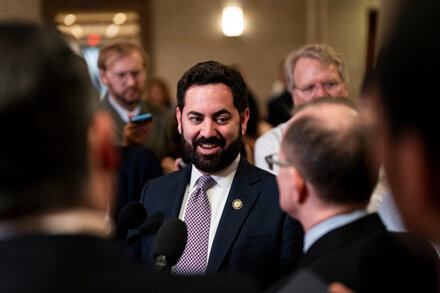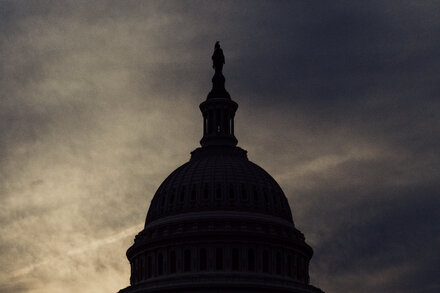
A strategy by the Trump administration to exert pressure on Democratic strongholds through targeted federal program cuts during a government shutdown appears to have reverberated significantly within Republican-held districts, creating unexpected political challenges for the party.
During the recent protracted government funding lapse, administration officials reportedly directed agencies to prioritize cuts and program suspensions in areas perceived as having a predominantly Democratic voter base. The intent, according to sources familiar with the internal discussions, was to amplify public pressure on Democratic lawmakers to concede to administration demands for budget allocations.
However, the broad and often interconnected nature of federal programs meant that the impact of these cuts quickly spread beyond the intended targets. Agricultural subsidies, rural development grants, infrastructure project funding, and even federal employee payrolls, which are critical in many conservative regions, were among the services affected.
One senior administration official, speaking anonymously due to the sensitive nature of internal policy discussions, stated,
“Every effort was made to minimize disruption, but a government shutdown necessitates difficult choices. The responsibility for these disruptions ultimately lies with those who refused to negotiate in good faith.”
Despite this assertion, the economic and social fallout has been keenly felt in districts represented by Republican members of Congress, prompting a growing chorus of concern from within the party.
Widespread Impact Beyond Partisan Lines
Examples of the unintended consequences abound. In several Midwest states, where agricultural communities lean Republican, farmers reported delays in crucial loan disbursements and program certifications. Federal contract freezes impacted small businesses in various states, regardless of their dominant political affiliation. In Western states, national park closures and reduced federal land management services drew ire from tourism operators and local residents alike, many of whom reside in conservative areas.
Representative Mark Thompson (R-WY), whose district heavily relies on federal land resources and agricultural support, expressed frustration during a local town hall meeting.
“My constituents are facing real hardships because of these delays. We understand the need for fiscal discipline, but these indiscriminate cuts are hurting the very people we were elected to represent,” Thompson stated. “We need a resolution that doesn’t punish hardworking Americans, no matter their political leanings.”
Democratic leaders, while critical of the administration’s tactics, have pointed to the ripple effect as evidence of a flawed strategy.
House Minority Leader Nancy O’Connell (D-CA) remarked,
“This administration consistently attempts to weaponize the government against political opponents, but their shortsightedness invariably harms all Americans. The pain being felt in Republican districts is a tragic testament to a strategy that prioritizes political theater over the well-being of the nation.”
Political Ramifications
The blowback from Republican constituents could complicate future political calculations for the administration and for G.O.P. lawmakers seeking re-election. Local businesses and community leaders, often staunch supporters of the Republican party, have voiced disillusionment over the direct impact on their livelihoods and community projects.
Analysts suggest that while the administration’s initial aim was to shift blame and pressure Democrats, the boomerang effect of the cuts has instead illuminated the pervasive nature of federal funding and services across the entire nation, regardless of the political leanings of a specific district. This development may prompt a reassessment of shutdown strategies and their broader political costs.
Source: Read the original article here.





